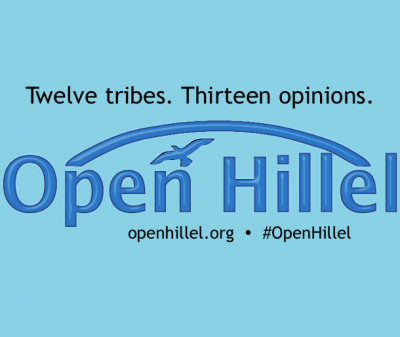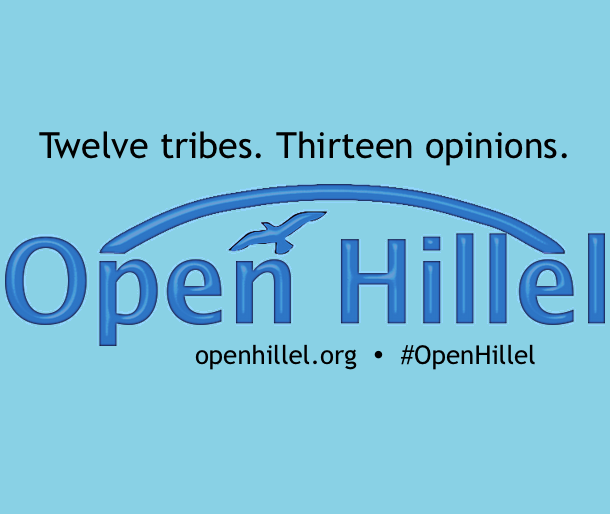
Hillel is advertised as “the foundation for Jewish campus life.” Yet, even before I joined the programming board of my Hillel at Tufts University, I could tell it was missing an important part of the Jewish campus community: those who support Palestine through international non-violent movements that currently fall outside the Jewish institutional mainstream. In order to be accepted there you had to be a steadfast Zionist, your public feelings toward Palestinians could drift no further left than ambivalence.
Although I made friends at Hillel, I didn’t understand why there was never debate about Israel/Palestine in the building. Eventually, I learned that Hillel International has a universal policy against co-sponsoring events with any group that advocates supporting the creation of a Palestinian state by boycotting, divesting from and sanctioning Israel — known as the BDS movement for short. The ban includes the prominent campus Palestinian solidarity group, Students for Justice in Palestine.
Although I knew I was anti-occupation and pro-peace, I tried to ignore the attitude at Hillel that Zionism and Judaism are one in the same. It was more important for me to make Jewish friends.
I visited Israel for eight weeks the summer after my freshman year. While I was there my views began to solidify and I realized just how anti-occupation I was. Everything changed when in Haifa I asked a lecturer why a 5-year-old named Mohammad couldn’t cross a checkpoint to visit his uncle in East Jerusalem, while a 5-year-old named Jacob who lives in an illegal settlement could do so easily. A Jewish American member of my program interrupted the lecturer with the answer: Mohammad can’t cross the checkpoint because his parents are terrorists and he has a bomb in his backpack that he doesn’t know about.
In that moment, I knew I needed to be in solidarity with the Palestinians and work to end their oppression. My Jewish upbringing taught me, “You shall not wrong a stranger or oppress him, for you were strangers in the land of Egypt” (Exodus 22:21). Why wouldn’t I apply these values to Israel and Palestine too? When I returned to campus in the fall of 2012 I became involved in Palestinian solidarity at Tufts and in the greater Boston community. As I told others about my changing views, Hillel began to feel more and more like a place that was only accepting of accepting of a narrow brand of centrist and center-right Zionism — not of all Jews.
Hillel advertises itself as “the foundation for Jewish campus life.” Despite that expansive phrase, Hillel acts like the “foundation for Jewish campus life — but only for Jews who support Israel unconditionally, including the illegal occupation of the West Bank and the Gaza Strip.”
A key feature of Judaism is critical discussion and open debate. Even our religious texts are filled with disagreements. Today there are many constructive debates going on in the Jewish community on topics ranging from women reading Torah to U.S. immigration policy. Yet when it comes to Israel/Palestine, there is little room for debate, especially in Jewish college communities.
The Standards for Partnership section of Hillel International’s Guidelines for Campus Israel Activities states:
Hillel will not partner with, house or host organizations, groups or speakers that as a matter of policy or practice:
- Deny the right of Israel to exist as a Jewish and democratic state with secure and recognized borders;
- Delegitimize, demonize or apply a double standard to Israel;
- Support boycott of, divestment from, or sanctions against the State of Israel;
- Exhibit a pattern of disruptive behavior towards campus events or guest speakers or foster an atmosphere of incivility.
Hillel’s Israel Guidelines create an unwelcoming environment by discriminating against Jews like me who openly hold dissenting views on Israel/Palestine. These rules stifle thoughtful debate, making many of us feel uncomfortable and voiceless. I have been called a “self-hating Jew” and a “traitor to my people” in the Hillel building, though Hillel’s Israel Guidelines purport to ban those who “foster an atmosphere of incivility.” While supposedly banning those who “apply a double standard to Israel,” Hillel has created a double standard of its own.
In 2011, Brandeis University Hillel refused to make the Brandeis chapter of Jewish Voice for Peace one of its sub-groups because of JVP’s support of a boycott of illegal settlements and divestment from the occupation. The JVP students gained broad support, including a petition signed by one third of the undergraduate student body. Yet they were still excluded.
Last November the Harvard Progressive Jewish Alliance, which is affiliated with Harvard Hillel, was barred from holding an event in the Hillel building because it was co-sponsored by a group forbidden by Hillel’s Israel Guidelines. The event, “Jewish Voices Against the Israeli Occupation,” featured two Jewish speakers, an American and an Israeli. This event spoke to every difficult feeling I have ever had about Israel/Palestine, and created an important arena for other Jewish students to wrestle with questions of identity and politics. However, despite featuring only Jewish speakers and being directed specifically toward Jewish students, this event was not Jewish enough to be housed at “the foundation for Jewish life on campus” because a Palestinian solidarity group was co-sponsoring.
I am currently starting a chapter of Jewish Voice for Peace at Tufts. Although we are members of the Jewish community here, Hillel’s Israel Guidelines exclude us because we support targeted BDS against the occupation. Ever since I publically acknowledged my support of Palestine, including writing an op-ed for the Tufts Daily about Hillel’s Israel Guidelines, I have felt unwelcome at Hillel. I remain Interfaith Co-chair of Hillel’s board, but I have lost much of my connection to the Jewish community here.
One of my favorite parts of Judaism is attending Shabbat services, but I have not done so since the beginning of last semester, because I’m afraid of what others at Hillel will say to me.
Harvard’s Progressive Jewish Alliance has created a petition called Open Hillel, asking Hillel International to remove the Israel Guidelines. Doing so will make room for genuine conversation and make the Hillel community more welcoming for all.
Critics of this petition have called BDS anti-Semitic, claiming that a removal of these guidelines would mean that Hillel is giving up on Israel. But BDS is not anti-Semitic. It is anti-occupation and pro-human rights for all. To criticize the Israeli occupation is not to criticize Judaism, but to criticize oppression. To remove Hillel’s Israel Guidelines is not to give up on Israel, but to allow students to critically engage and more deeply connect with the issue of Israel/Palestine.
This petition is not about politics or BDS, but about creating an inclusive Jewish community. Signing the petition does not mean that you support BDS, but that you want a community that includes every Jew. Judaism is not the same thing as Zionism. The Israel Guidelines have turned “The Foundation for Campus Jewish Life” into a foundation for Hillel’s preferred narrow brand of pro-Israel activism.
Hillel must remove its Israel Guidelines if it wishes to live up to its mission and welcome all Jews, regardless of their political opinions. I urge you to sign the Open Hillel petition today. Regardless of your feelings on Israel/Palestine, help us make sure that every Jewish college student can find a home away from home at Hillel.
Julia Wedgle is a sophomore at Tufts University studying Peace and Justice Studies and Community Health. She is Interfaith Co-Chair on Tuft Hillel’s programming board, founder of Tufts Jewish Voice for Peace and a member of Tufts Students for Justice in Palestine. She can be reached at julia.wedgle@tufts.edu.

